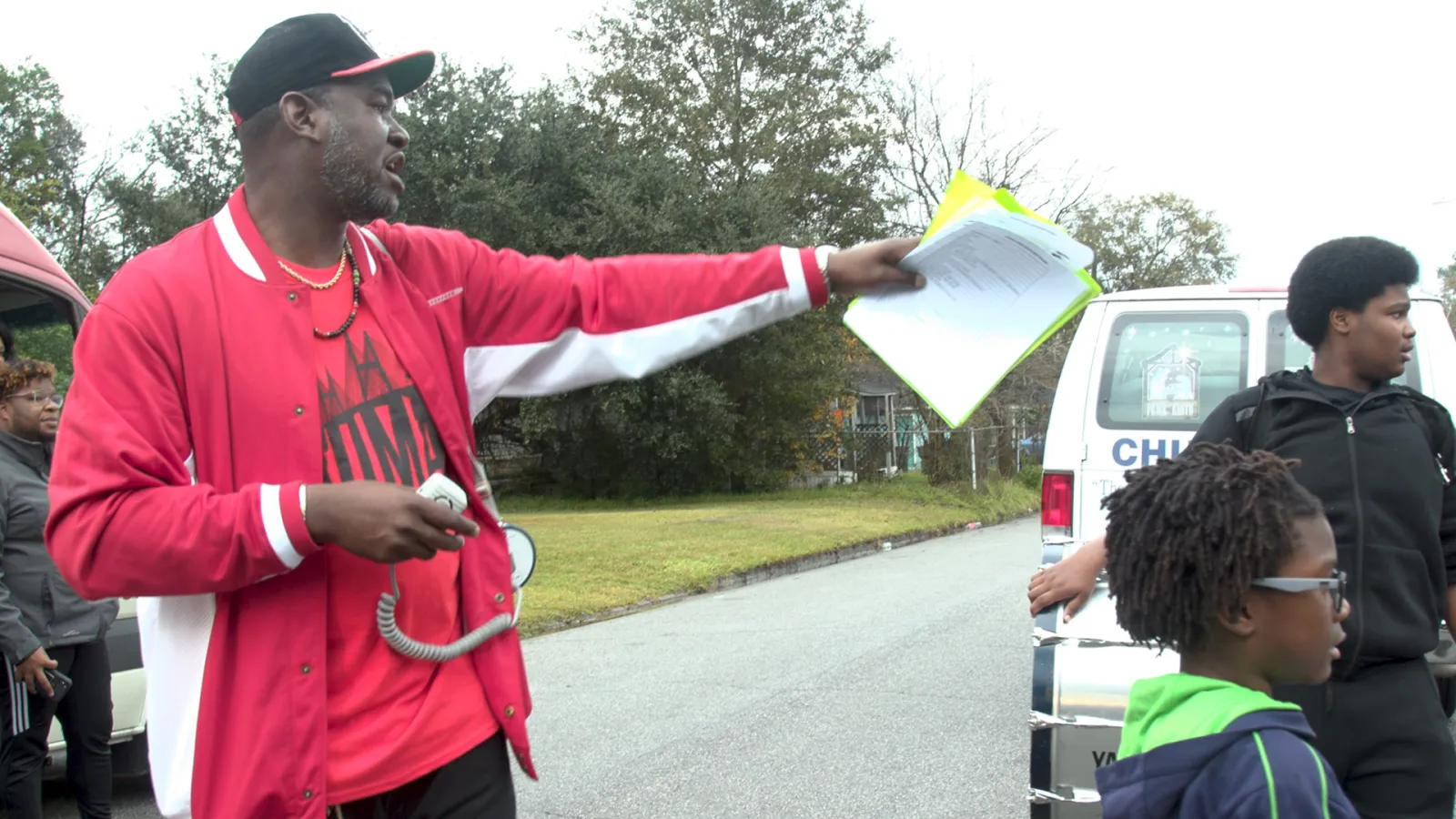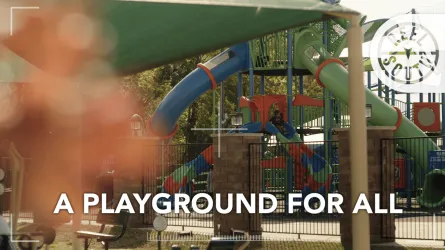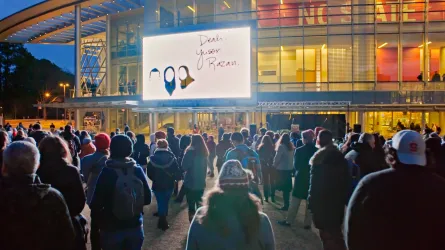Earlier in February, we premiered Abbey Hoekzema's short film "Mentor," which highlights the work of Urban Mentoring Academy of Savannah and Tre Singleton who mentors a group of young Black men in Savannah, Georgia for about 30 hours a week on average. We connected with Singleton to learn more about his work and how he started in his mission to change the narrative for young men in his community.
The interview below has been edited and condensed for clarity.
What was your original reaction to Abbey wanting to create a documentary from your volunteer work?
My first reaction was of joy. At the time we were really just starting out the program we were trying to get all the kinks out trying to figure out exactly what we were going to do, how we were setting up the program and setting up our different classes.
We do have a school called "SCAD," meaning the Savannah College of Art and Design and film is pretty big with SCAD. So with our organization being right around the corner from the school, we thought that a class will be great because it's is something that can grow into a partnership with the local school and the folk the local film industry.
And just Abbey, personally, she is just great. When I first met her, we just kicked it off like we've known each other for the past 10 years. I appreciate the work that she has done and the work that she does. She's an amazing person.
How did you feel about having a documentary about yourself? How was it being filmed? Was it your first time?
Not only was I excited, but I was also a little scared because I'm not a film guy and I don't know the ins and outs. Also, I didn't know how far this was going to go. I thought, "What if it blows up? How does everybody benefit? What if it doesn't go anywhere? What happens to all the footage?" But Abbey and I sat down and she just broke everything down to me from A to Z. That's what comforted me about doing the documentary.
As for me being filmed, it is my first time being filmed and I didn't know how to use my voice and I didn't know what to do with my hands. I have a pretty deep voice, so I sometimes had to be re-recorded because of it. But Abbey was great at making me feel comfortable through different takes.
How did you and Abbey connect?
We met through a mutual friend, Molly Lieberman, who also works with youth and once she and I met, it was locked in and we were good to go. She's done so much for her class and I think she found a friend in me and I found a friend in her. We've been able to communicate on so many different levels, so I really do appreciate everything that she did for me, with me and what I've been able to do for her.
How did your youth help Abbey with the documentary?
She showed the kids how to use her equipment in her class, so some of the footage that you may see, there may be a young man behind the camera. She actually taught her class during the filming, so there are a few young men that aren't seen because they are behind the camera, like some of the personal interviews.
What do you hope people will learn from your story?
I think I just hope that they learned that there are mentors out there that want to create different avenues for students in their community. I really wanted people to see that a documentary was being made about the kids around Savannah, Georgia, and the kids that were in the program. Once you saw the different youth that were in it, it will give you an opportunity to tighten up your bootstraps and to help out in their own communities.
It's just a small part of my life but it's something that I've been wanting to do for a very long time, which was to create a mentor program. You see them popping up all over the place, but they don't last too long, and they don't do what we do, because we actually go out and we get these kids and we bring them in. It's so important to go pick up the kids from school because sometimes parents don't have the means to transport them around town.
How did you start volunteering in this way?
I was in the military and they would ask for volunteers to go to schools and mentor students, so I was one of the heavy hitters at my base to speak to students. Once I got out of the military, I still wanted to be involved in some way, so I started mentoring with the local Boys and Girls Club. I had a young man who I mentor and we created an amazing bond and we then created this nonprofit. And it took no time for us to grow into a massive organization. We were recommended to the Department of Juvenile Justice and the police department and the city. So many people were reaching out to us to mentor troubled boys.
But yeah, I can help, but what can you help us with financially? That has always been a struggle for us. We haven't financially been able to do what we want with these children because people don't always believe in putting their money into the future of our society. In our society, we put our money in frivolous things and not what really matters, like these children.
What other classes do you hold?
From when the time we started, we've held an array of classes. We've done carpentry, film, big brass band (like the ones in New Orleans), Taekwondo, engineering, law and civic leadership, real estate — we taught them about gentrification and how they could eventually stop it within their own neighborhoods and communities. We're trying to educate our students on how to go back into their community as a whole.
Category
Share


